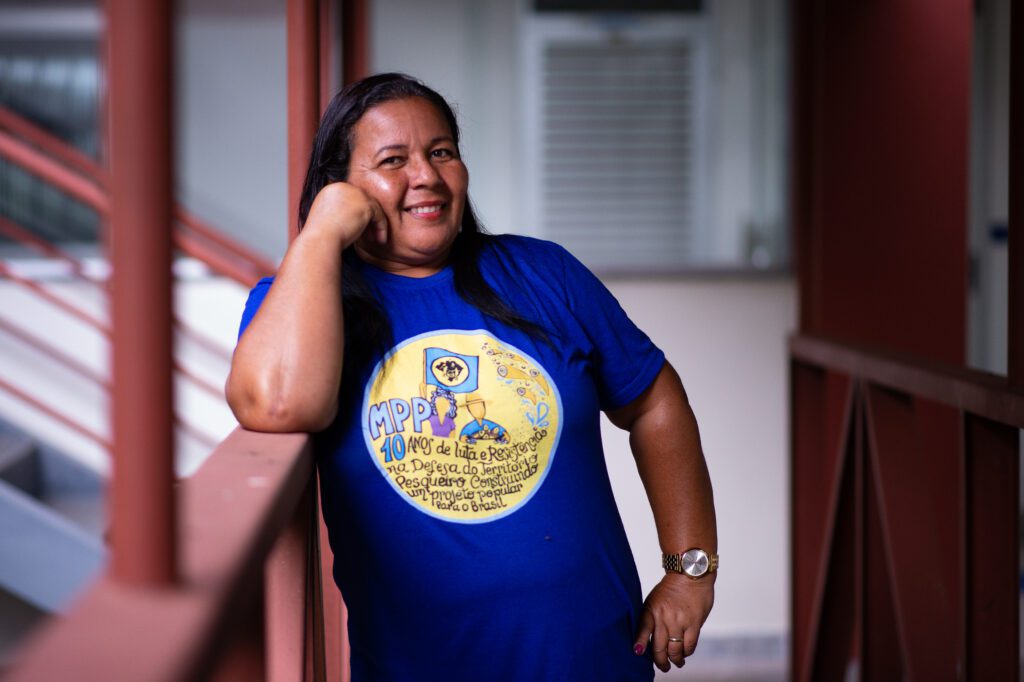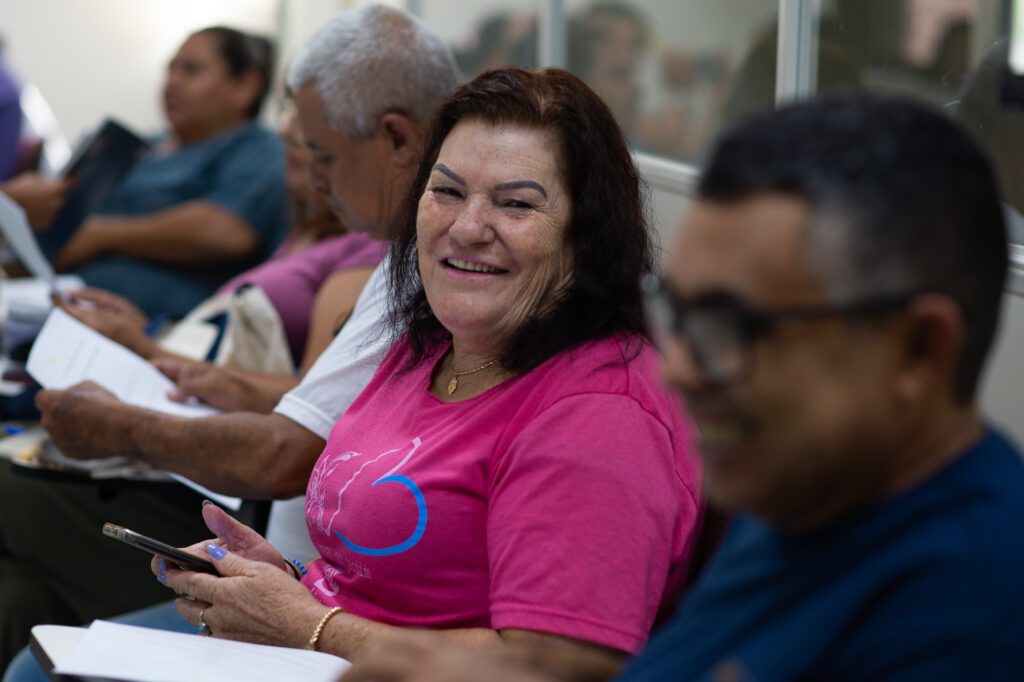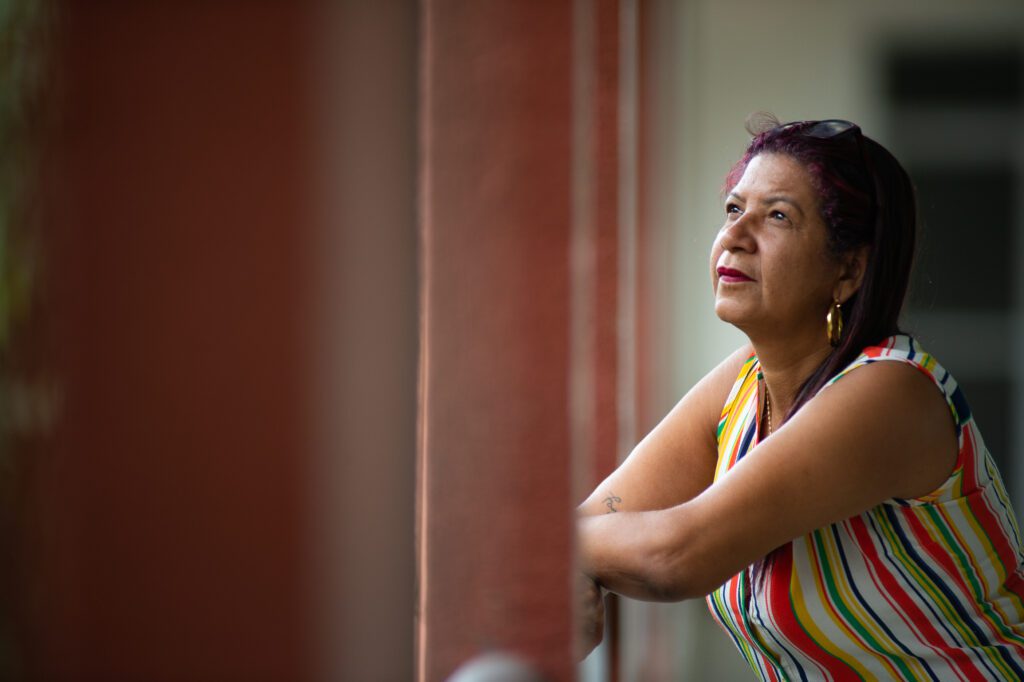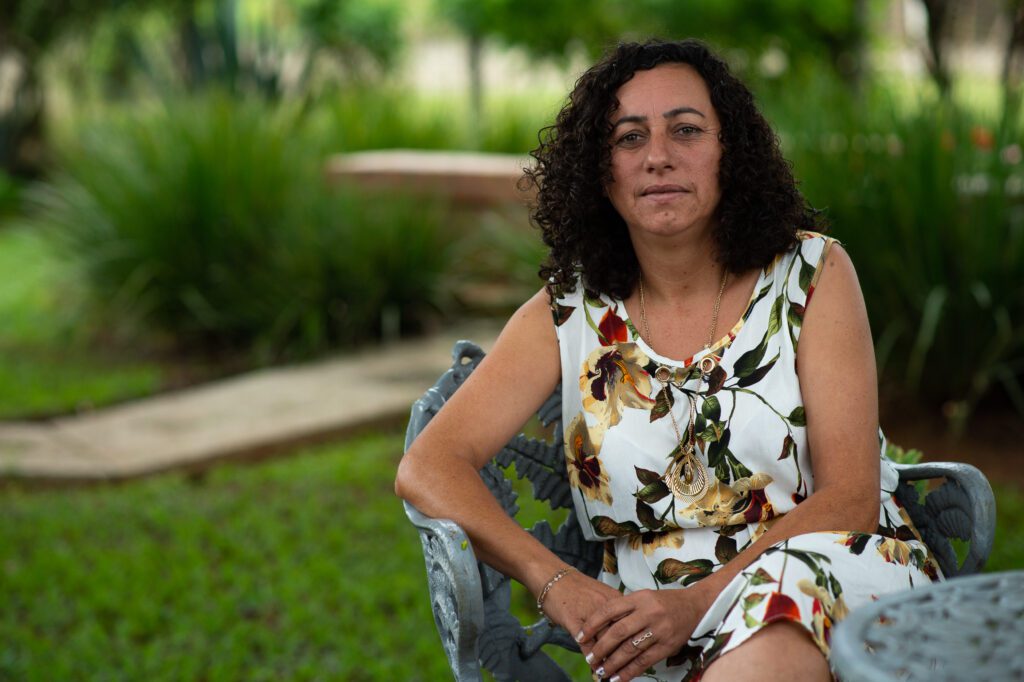March 8, 2023
Women mobilize for their rights as artisanal fishers
Brazilian fisherwomen and shellfish gatherers are mobilizing to demand adequate representation in their sector, following decades of neglect. In January 2023, fisherwomen from four coastal regions in Brazil gathered with fishermen in the capital, Brasilia, to discuss critical changes needed in the fishing sector. The workshop, supported by Oceana, resulted in the “Letter of Brasilia” – a public call for decision-makers to update the country’s fisheries law – which was filed in Congress shortly after the meeting.
The group also drafted a proposal that includes 20 new requirements to address the needs of artisanal fisherwomen throughout the country, including:
- respecting the identity of fisherwomen;
- ensuring participation and rights of fisherwomen in decision-making spaces;
- creating specialized health care programs for fisherwomen and shellfish gatherers;
- creating educational and training programs for new fisherwomen leaders and their children;
- the end of institutional gender violence; and
- strengthening the collective of women living in traditional communities.
Below are some stories from Brazilian fisherwomen about their lives, their work, and why they’re fighting to reform Brazil’s fisheries law.
Jadeir Regina Nascimento

“We are forgotten by the government at all levels, municipal, state, and federal. Today, I see doors opening for us fisherwomen, because we are building, at the base, a bill for fishing with the chance to say what hurts and what hurts me as a fisherwoman,” says Jadeir Regina Nascimento, a fisherwoman from Maxaranguape in the northeast state of Rio Grande do Norte.
In her fifth term as president of the Fishermen’s Colony in her municipality, Nascimento feels that, for the first time as a fisherwoman, there is the possibility of recognition and professional identity. In the past, she was ashamed to say she was a fisherman because she felt a clear contempt from society toward women involved in fishing. Today, she is filled with pride and belonging. The day her daughter graduated from college, Nascimento realized her own empowerment. “At the graduation, her daughter took a net and said: ‘Mainha [Mommy], through fishing, you formed your daughter.’ It’s a lot of pride,” Nascimento adds.

Venina dos Santos Moraes
Born and raised in a fishing family on the north coast of Rio Grande do Sul, Venina dos Santos Moraes never had time to take care of her health until she was diagnosed with cancer. “Life was a child, a house, fishing, and stress. And we were never looked at. Thanks to God, I am healed and ready to fight for the government to create, within the Ministry of Fisheries, a Secretariat for Women Fishermen.”
“Life was a child, a house, fishing, and stress. And we were never looked at.”
Neia Vieira

As President of the Fishing Association in Cariacica – a municipality in the southern state of Espírito Santo – Neia Vieira is critical of gaps in the current fisheries law, which does not give adequate inclusion or visibility to women working in the sector. “We want this recognition as an artisanal fisherwoman, regardless of whether the woman weaves a net, goes out to sea to fish, cleans or processes the fish, or goes out in search of shellfish.”
Vieira says fisherwomen face health risks on the job, including skin problems from exposure to ultraviolet rays, contact with pollutants, and possible animal attacks. Shellfish gatherers, according to Vieira, are also at risk from exposure to heat and smoke, repetitive movements that cause Repetitive Strain Injury (RSI), and a series of ergonomic problems caused by the squatting position, such as herniated discs and pain in the lumbar spine and sciatic nerve.

Viviane Machado Alves
Viviane Machado Alves, also from Rio Grande do Sul, believes the inequality of past decades is nearing an end. She considers the craft of being an artisanal fisher more than just fishing itself. “We fish, cultivate, process, sell, and, above all, we are also guardians of the environment. We are not just fishing support. We want that visibility. The moment is now with this new federal government that announces that it will govern with the people and for the people. So, there’s no way we can’t be present in this new fishing legislation.”
“We fish, cultivate, process, sell, and, above all, we are also guardians of the environment. We are not just fishing support. We want that visibility.”



